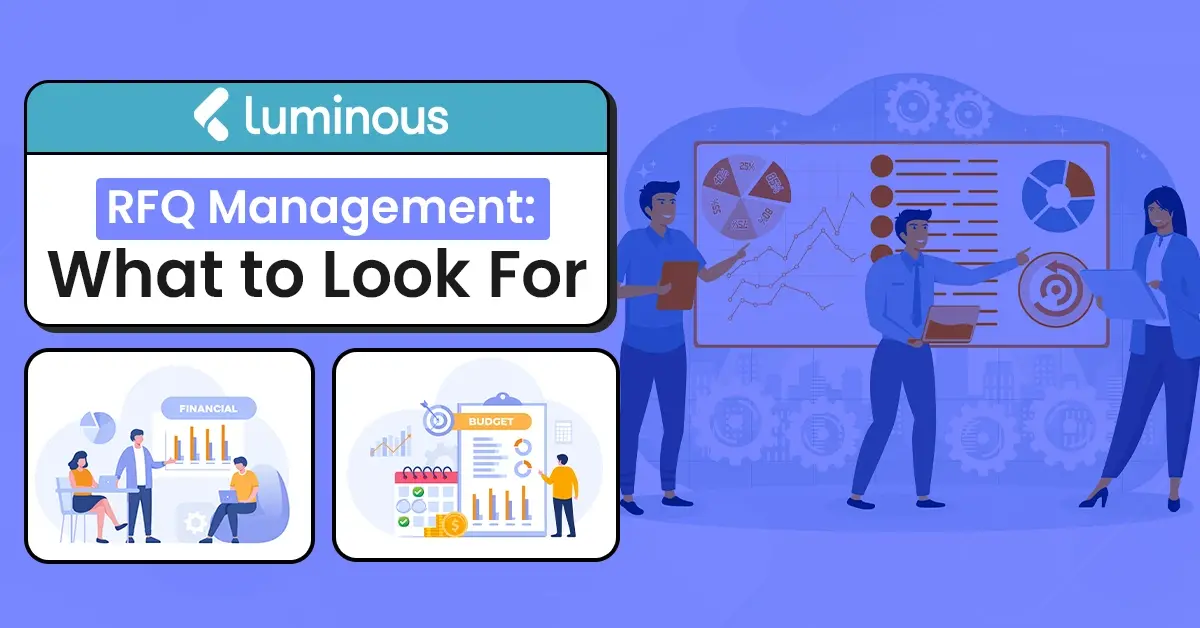RFQ Management: What to Look For

Request for Quotation (RFQ) management plays a crucial role in maintaining successful supplier relationships. By effectively managing RFQs, businesses can ensure competitive pricing, streamline procurement processes, and enhance overall efficiency. In this article, we will explore the essential metrics to consider when managing RFQs from suppliers, providing you with valuable insights to optimize your supplier relationships and drive success.
Response Time
Prompt response times from suppliers are indicative of their commitment to customer service and their willingness to meet your business needs. When managing RFQs, monitor the response times of suppliers closely. A timely response demonstrates their engagement and responsiveness, allowing you to gauge their reliability and determine their level of commitment. Prioritize suppliers who consistently provide quick responses, as this can contribute to faster procurement cycles and smoother operations.
Price Competitiveness
Comparing price quotes from different suppliers is a critical aspect of RFQ management. Look beyond the numbers and consider the overall competitiveness of the prices offered. Analyze the quotes received to ensure they align with your budgetary requirements and industry standards. Seek suppliers who strike a balance between competitive pricing and maintaining product quality. By monitoring price competitiveness, you can make informed decisions and negotiate favorable terms that support your business's financial objectives.
Product Quality
While price is important, product quality should never be compromised. Assessing the quality of the products or materials offered by suppliers is a key metric in RFQ management. Evaluate suppliers' track records, customer reviews, and certifications to ensure that they meet your quality standards. Engage in open communication with suppliers to clarify any doubts and gain confidence in their ability to consistently deliver high-quality goods. Prioritize suppliers with a strong commitment to quality, as this contributes to customer satisfaction and the reputation of your business.
Delivery Time
Timely delivery is critical for maintaining efficient operations and meeting customer demands. Consider the delivery times quoted by suppliers in their RFQ responses. Evaluate their historical delivery performance and assess their ability to meet deadlines consistently. Late deliveries can disrupt your supply chain, lead to stockouts, and harm your customer relationships. By prioritizing suppliers with a proven track record of on-time deliveries, you can enhance your inventory management processes and reduce potential bottlenecks.
Communication and Collaboration
Effective communication and collaboration are essential in managing RFQs successfully. Evaluate the clarity and completeness of suppliers' responses, their willingness to address your queries, and their level of engagement during the RFQ process. A proactive and collaborative approach indicates a supplier's commitment to fostering a strong working relationship. Look for suppliers who are responsive, transparent, and willing to work with you to find mutually beneficial solutions.
Total Cost of Ownership (TCO)
The total cost of ownership encompasses not only the initial purchase price but also the long-term costs associated with a supplier relationship. Consider factors such as maintenance costs, warranties, return policies, and any hidden costs that may arise. Evaluating the TCO helps you make informed decisions by considering the overall financial impact of engaging with a specific supplier. Seek suppliers who provide value beyond the initial transaction, offering favorable terms and ongoing support that align with your business objectives.
Conclusion
Effective RFQ management is essential for maintaining strong supplier relationships and optimizing procurement processes. By focusing on key metrics such as response time, price competitiveness, product quality, delivery time, communication, and total cost of ownership, you can make informed decisions, streamline operations, and drive success. Regularly assess and refine your RFQ management strategies to ensure that your supplier relationships remain strong, contributing to the growth and sustainability of your business.
Remember, managing RFQs is made easier with Luminous, your trusted inventory management software. Leverage its capabilities to track RFQs, monitor supplier performance, and make data-driven decisions that optimize your procurement processes. With a strong RFQ management approach and the power of Luminous, you can forge lasting partnerships with suppliers and unlock new opportunities for growth.

